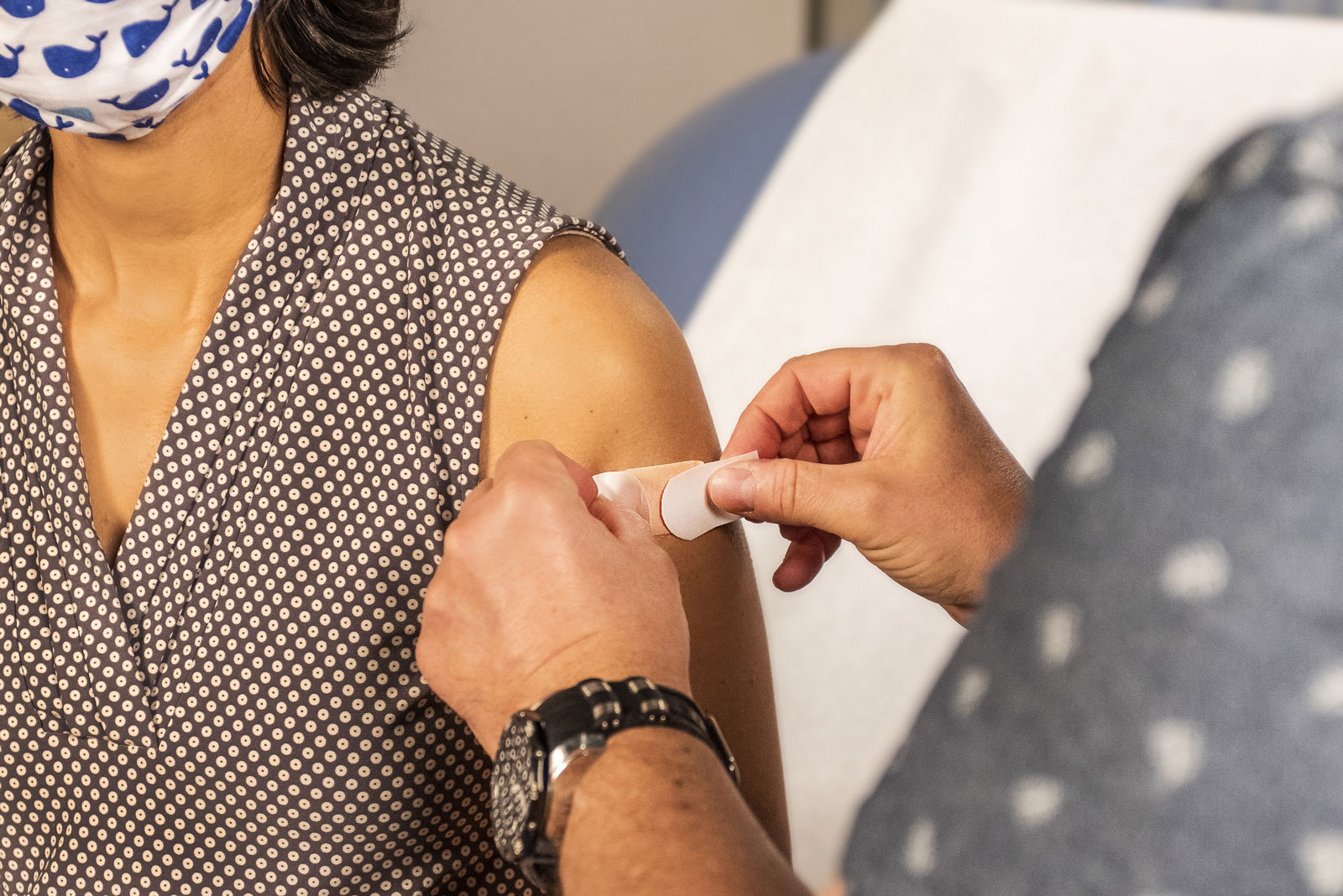
A new national study, co-led by UBC faculty of medicine’s Dr. Manish Sadarangani, will look at the effects of “mixing-and-matching” approved COVID-19 vaccines in adults.

Dr. Manish Sadarangani
The study—titled “Mix and match of the second COVID-19 vaccine dose for SAfety and ImmunogeniCity”, or MOSAIC—will assess the safety and effectiveness of using two different COVID-19 vaccines for the first and second dose. It will also study the effects of increasing the interval between doses.
“There are currently four COVID-19 vaccines approved for use in Canada, three of which are being distributed by public health programs,” says Dr. Sadarangani, an associate professor in UBC’s department of pediatrics and director at the Vaccine Evaluation Center at BC Children’s Hospital. “As other vaccines become available, they will be added to the study to address public health knowledge gaps. Study data will be communicated regularly to public health officials to help inform decision making for the ongoing vaccine rollout in Canada.”
Backed by approximately $4.8 million from the Government of Canada, through the COVID-19 Immunity Task Force (CITF) and the Vaccine Surveillance Reference Group (VSRG), the study is expected to enroll 1300 participants across Canadian Immunization Research Network (CIRN) clinical trial sites in Nova Scotia, Quebec, Ontario, Manitoba, Alberta and British Columbia.
“This research will provide critical scientific insight into the safety and effectiveness of mixing and matching COVID-19 vaccines, and could pave the way for a more flexible approach to vaccine rollouts taking place across the country,” says Dr. Dermot Kelleher, Dean of UBC’s faculty of medicine and Vice-President Health at UBC. “Dr. Manish Sadarangani’s work is an example of the incredible efforts underway at UBC to translate discoveries and research to health care in real-time to help save lives.”
“This research will provide critical scientific insight into the safety and effectiveness of mixing and matching COVID-19 vaccines, and could pave the way for a more flexible approach to vaccine rollouts taking place across the country.”
Dr. Dermot Kelleher
“Soon after vaccine roll out programs began, manufacturing interruptions resulted in delayed vaccine shipments to various countries, including Canada,” says Dr. Scott Halperin, co-chair of the VSRG and principal investigator of CIRN. “This led some provinces to change their vaccine delivery strategies, including following the National Advisory Committee on Immunization’s (NACI) approved guidelines to allow second-dose immunizations to occur up to four months after the first dose, rather than the 21-28-day period recommended by manufacturers. This study will give public health officials more information about how to manage their vaccine roll-out strategies going forward.”
“Studies on mixed COVID-19 vaccine schedules are underway in other countries, including
the United Kingdom,” says Dr. Theresa Tam, Canada’s Chief Public Health Officer. “In addition to international data, this Canadian study will help inform Canada’s public health recommendations on the potential to use different combinations of vaccines for the first and second dose, as well as different dosing intervals.”
The study will be co-led by Dr. Joanne Langley, the lead investigator of the CIRN Clinical Trials Network and a professor in the departments of pediatrics and community health and epidemiology at Dalhousie University.
If you are 18 years or older, in good health and would like to participate in the study, please visit https://cirnetwork.ca/mosaic/ for more information.
A version of this story was originally published by CITF.